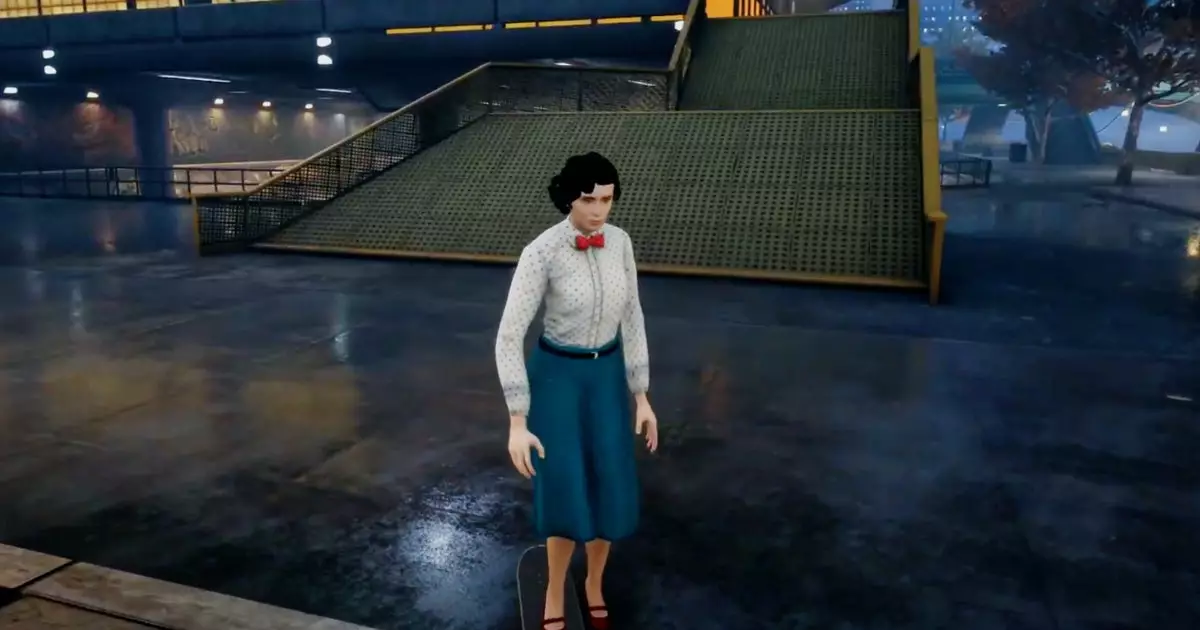The recent release of Tony Hawk’s Pro Skater 3+4 signifies more than a simple return to beloved skateboarding mechanics; it marks a resurgence of community-driven innovation that redefines how we experience nostalgic titles. While traditional game releases often stick to their original content, the vibrant modding community demonstrates that classic games possess an almost limitless potential for reinvention. This phenomenon highlights the profound influence of fans and hobbyists who breathe new life into aging titles, transforming them into dynamic platforms for creative expression.
In the case of THPS 3+4, early access has already sparked an energetic explosion of custom character skins and modifications. The dedication of modders such as Huckleberrypie manifests an impressive mastery of digital artistry, blending characters from disparate worlds into the skate park universe. From Tommy Angelo to Mary Poppins, these mods serve as playful bridges connecting popular culture, satire, and personal nostalgia. Such modifications not only enhance player engagement but also elevate the game beyond its original scope into a personalized universe where imagination takes precedence.
This movement challenges the notion that video games are static products frozen in time. Instead, they become living canvases, with modders acting as unofficial developers shaping the experience into something uniquely tailored. Platforms like Nexus Mods act as meeting grounds where creative minds converge, collaborating unofficially to craft fresh content that resonates with a diverse player base. The addition of characters like Elsa from Frozen or Tony Soprano demonstrates how the modern gaming ecosystem fosters inclusivity of pop culture, humor, and whimsical storytelling, transforming a simple skateboarding simulation into a multifaceted playground.
Humor, Storytelling, and the Power of Narrative in Mods
One of the most intriguing aspects of these mods is their capacity to imbue characters with humorous or poignant stories that deepen their engagement. Take, for example, Huckleberrypie’s reimagining of Mary Poppins—a figure traditionally associated with whimsy and childhood nostalgia—now portrayed as a rocker tearing up the park on a skateboard amid a background story involving her return after a family tragedy. This quirky narrative adds layers of personality, humor, and cultural commentary that the original game design rarely explores.
This creative storytelling infantilizes the idea of character swaps, turning what might seem like trivial visual changes into meaningful narratives. By assigning Michael Banks’ mother a backstory of resilience and rebirth through skateboarding, the mod injects an element of emotional depth and humor into an athletic game. Such storytelling demonstrates how modders participate in a form of digital storytelling, blending pop culture references with personal creativity to craft engaging, memorable experiences.
Additionally, the playful absurdity of a character like Master Chief skating on a mini-tank exemplifies the freedom of modding—disregarding realism in favor of fun, surprise, and cultural mashups. These alterations serve as a satirical reflection on the original content, offering a fresh commentary that challenges conventional expectations and invites players into a universe where the absurd becomes the norm. It reflects an era where gaming communities are more interested in shared humor and innovation than in maintaining strict fidelity to the source material.
The Future of Nostalgic Gaming: From Reverence to Reinvention
The thriving modding scene surrounding THPS 3+4 indicates that the future of nostalgic gaming lies in community participation and creative reinterpretation. While the official release provides a nostalgic anchor, it is the community that transforms that anchor into a launchpad for endless creative exploration. This is more than mere customization; it’s a cultural phenomenon that redefines what it means to experience a classic game.
In a broader sense, these mods challenge the traditional top-down approach of game development that often limits the potential of a title after its initial release. Instead, community modifications promote a democratization of content creation—a shift towards a more participatory and interactive gaming culture. With the rapid pace of technological advancement, future iterations could incorporate even more sophisticated mods, ranging from standalone characters to entirely new gameplay mechanics.
Ultimately, this movement underscores the importance of embracing community input and fostering environments where creativity flourishes. As fans take ownership of their favorite titles, nostalgia becomes a living, breathing entity that continually evolves with each new mod. This approach not only extends the longevity of classic games but also cultivates a passionate, engaged community eager to push boundaries and redefine what gaming can be—creative, inclusive, and endlessly surprising.

